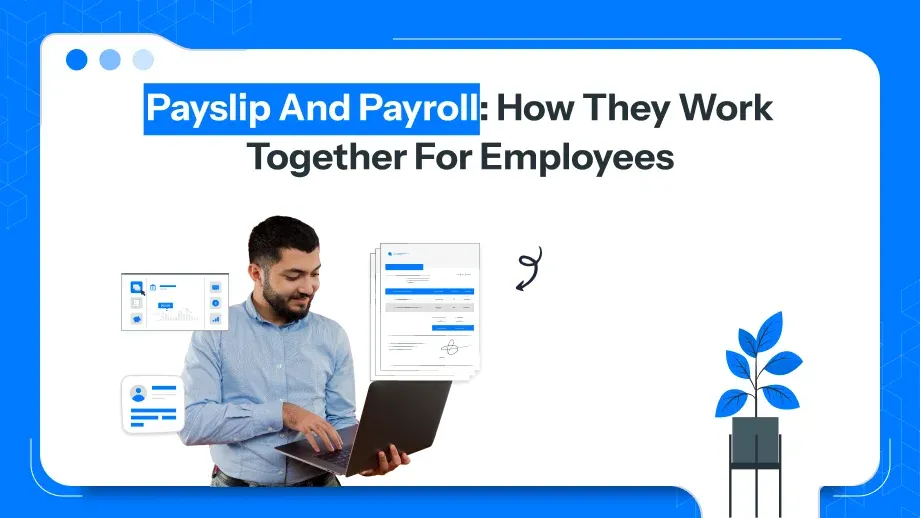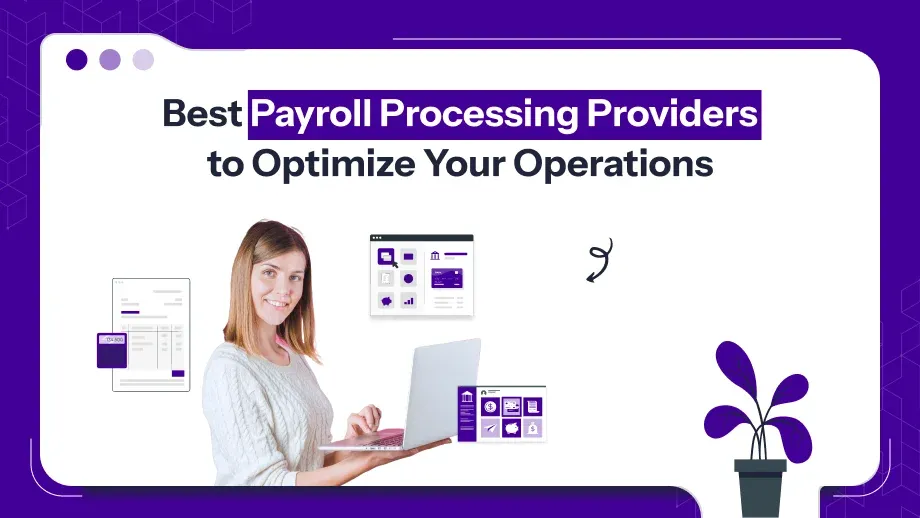Advance salary is usually subjected to a percentage of the employee's next cheque, and most companies impose it between 10% to 50%.
Grab a chance to avail 6 Months of Performance Module for FREE
Book a free demo session & learn more about it!
-
Will customized solution for your needs
-
Empowering users with user-friendly features
-
Driving success across diverse industries, everywhere.
Grab a chance to avail 6 Months of Performance Module for FREE
Book a free demo session & learn more about it!
Superworks
Modern HR Workplace
Your Partner in the entire Employee Life Cycle
From recruitment to retirement manage every stage of employee lifecycle with ease.


Seamless onboarding & offboarding
Automated compliance & payroll
Track performance & engagement
How to Create a Salary Advance Policy That Works for Your Business?
- salary advances
- 9 min read
- October 11, 2024
- What Is a Salary Advance?
- Why Advance Salary Presentations Can Support Your Business?
- How to Create a Clear Salary Advance Policy?
- Legal Considerations and Risks of Salary Advance
- Company Cash Flow Impact: Salary Advance Plan
- Alternatives of Salary Advances
- How to Communicate and Implement the Policy
- Practical Tips when Establishing a Salary Advance Policy
- Ensuring Compliance with Legal Regulations
- The Way to Promote Financial Wellness through Salary Advances?
- Conclusion
What Is a Salary Advance?
Salary advances are financial benefits allowing employees to receive part of their salary before payday. The practice becomes more and more popular as businesses understand that employees would get caught up by unexpected financial situations. Giving advance salary boosts the morale of employees and reduces their financial stress, which businesses should have a clear policy to implement the process correctly.
We will take you through all the key steps necessary for creating a salary advance policy, in this article, which will prove highly beneficial to the employees and the employers alike. We have looked into the legal considerations and possible risks associated with presenting a salary in advance, while providing tips on how to maintain healthy cash flows when presenting a salary in advance.
Why Advance Salary Presentations Can Support Your Business?
Advanced salary can impact your workforce in a positive way. It helps workers deal with financial crises without taking out loans or counting on high-interest credit cards. The flexibility of such provision can actually increase employee job satisfaction, resulting in increased retention rates and productivity. In industries where churn rates are already high, it can be the answer to loyalty building and keeping the best skills.
Moreover, the employees may have fewer absent days from work, just because they are less anxious and can perform better on their jobs. Thus, there will be good performance with lesser absenteeism.
The companies that implement this procedure among their benefits for employees will likely feel a long-term impact on team morale. The workers welcome an effort by the employer to support them during times of need.
How to Create a Clear Salary Advance Policy?
A well-defined, simple and valid law compliant salary advance policy will precede its deployment. Consider the following while drafting the policy:
- Eligibility: Who is eligible for a salary advance? You could make eligibility limited to full-time workers, or others with a certain tenure.
- Limits: Set limits on how large advances employees are allowed to take. Companies will typically limit advances to a percentage of the employee’s next paycheck and will often set them between 10% and 50%.
- Repayment Terms: Most outline how a salaried employee will repay the advance. Most companies will just subtract the salary from future paychecks, and some employers require repayment in one cycle, while others will allow repayment over multiple pay periods.
- Request Process: Procedure There should be a process by which employees make requests to advance their salaries; use a formal process, whether it is via email or software used in payroll software, so all requests are documented.
- Approval and Denial: The policy should indicate how such requests will be approved or under what conditions they might be denied.
By including these above details in your policy, you will control the expectations of your workers, and your business will be able to fulfil all such requests without forcing a break in your money flow.
Ready to boost morale with Salary Advances?
Create your policy today and safeguard your business’s finances!
Legal Considerations and Risks of Salary Advance
The plan can only be effective, though, if all legal compliance is observed. Payroll laws vary by country. The point is that salary advances in India should not have broken the local labour laws, for instance. There are serious interests at stake as the employer could be advised to limit his payroll deductions, together with the handling of deductions on pay when the pay advance is being repaid by the employee.
The risks include disruptions of cash flow for your business as a huge number of employees may require the advance at one go. Therefore, there needs to be a limit on the advances that can be allowed within a given period of time and closely monitor the overall impact on the cash flow of the company.
Company Cash Flow Impact: Salary Advance Plan
A policy can strain a company’s cash flow when not managed properly. A review of your company’s financial stability will be in order before you create a policy. It is essential to calculate how much of an advance your business can extend without disrupting operational costs.
If the company has tight cash reserves, then third-party services such as Superworks will work for you in terms of salary advance financial solutions. Hence, such services are relatively more flexible and will not burden the budget of the company.
Provided one plans and guides clearly, one can provide salary advances without risking financial instability.
Alternatives of Salary Advances
There are alternatives that can be used if it is not possible with your business to support your employees. For example, early salary services allow workers to get their wages before payday without directly impacting the company cash flow in its pocket. Analogously, Salary Software can make the payment with automation and advances made available for easier interaction between the employers.
You can even offer financial counselling or flexible working hours for employees to manage their finances better.
How to Communicate and Implement the Policy
Once you have a well-articulated policy, it is very important to communicate it to your employees. Transparency works in your favor here too. You should make workers know how you would accommodate a request an advance payment, what the approval process would be like, and how you would manage repayment.
Training your HR and payroll teams is also important. They should be equipped on how to work out salary advance requests and ensure correct computations are reflected in the payroll system. For example, with the help of HR payroll software, you can manage and automate these processes to minimise chances of error.
Finally, set a regular review cycle for the policy so it can be responsive to the needs of both employees and the business.
Practical Tips when Establishing a Salary Advance Policy
When doing a salary advance policy, practicality and planning are all that best work for success. A pilot program should be established while considering the following practical steps to ensure smooth and successful implementation:
Start Small With a Pilot Program:
To begin with, pilots test a company-wide policy. Select just a few employees and offer it to them on certain terms and conditions. Now, in this manner, you can test the whole process, gather feedback, and make adjustments appropriately before rolling out the policy for the whole company.
Automation of the Process using Payroll Software
It is time-consuming and error-prone if done manually. Modern payroll software like Salary Software actually automates every process in payroll-the requests, submission through the repayments made to the employee, as well as any business. It takes away the chances of miscalculations by making payments more prompt to the employees as well as to the business.
Review the Policy Periodically
As time goes, what an employee needs changes as well, and so do the company’s finances; therefore, it is necessary to review your policy at times. Seek employees’ and managers’ feedback and assess whether the current limits and terms are still applicable. The kind of policy that’s way too restrictive might not actually benefit an employee; on the other hand, one that is too lenient may lead to financial difficulties.
Analyse Abuse of the Policy
Although most employees will use salary advances responsibly, it is important to have systems in place to monitor for potential abuse. Track frequency of requests and ensure advances are not being overused. Some businesses limit the number of advances allowed within a given time frame (for example, one advance per quarter or year).
Ensuring Compliance with Legal Regulations
Legal compliance would be one of the most critical issues relating to the provision of this. Companies and employers have to ensure their salary advance practices do not contravene labor laws, which can be very different from place to place across a given country. For instance, in salary advance India practices, it becomes indispensable for employers to know the laws of employment related to wage payments, such as deductions and when this should be possible.
More than that, employers must make sure that the interest rates and conditions for repayment that are imposed do not carry illegal interest rates or terms that contravene local legislations. You are highly recommended to consult a lawyer or a labor law expert before making any final decision on your policy. This will save your business from all post-event legal complications.
Moreover, for those whose operations are carried out in several different countries, the salary advance policy would need to be tailored according to the legal systems within each country. What is allowable and legal in one country does not have the same probability in another, hence this has to be planned case by case and not in a one-size-fits-all basis.
The Way to Promote Financial Wellness through Salary Advances?
While offering instant relief to employees facing financial difficulties, they form only a part of a complete solution. To aid employees in long-term financial well-being, a company can offer financial wellness plans, much like other salaried positions.
Offer Financial Literacy:
Providing financial literacy options for employees will also enable them to use their money effectively. Areas like budgeting, managing debts, and saving money for emergencies empower them to eventually be more financially stable and require less of this cash advance.
Encourage Emergency Savings Accounts:
Some organisations have partnered with banks that will permit their employees to create an emergency savings account. Contributions can be made directly from payroll deductions so that employees will always have a cushion without having to frequently request advances.
Implement Variable Pay Cycles:
For some others, early salary access or flexible payroll may actually eliminate advances. For example, paydays could be made bi-weekly from monthly, thus probably more in sync with the employees’ liquidity cycle and helping them better manage their expenses.
Conclusion
Providing salary advances can be beneficial both to the employees and the employers. However, it requires appropriate planning and the right communication. A comprehensive policy is developed, and the company in question remains on the right side of the law. In addition, close monitoring of the financial implication assures the successful implementation of a salary advance system suitable for all parties.
If you are interested in implementing salary advances, it starts with an examination of your cash flow and setting clear objectives that might suit your business needs.
FAQs
How much money can workers be allowed to get in a salary advance?
Does the advance salaries impact company cash flow?
Yes. It will sometimes reduce the cash available temporarily. Proper planning may help avoid the risk altogether. Superworks can be used to manage the advance.
How does an employee request in advance?
Most corporations have a formal process, like sending an email for submission or payroll software, so the employee can request it.
What are alternatives to salary advances?
Choices are early salary administrations, payday credits, or adaptable finance alternatives that the finance program oversees.



